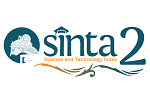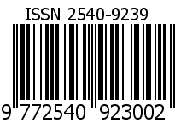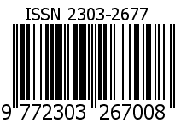Information literacy on the dangers of Covid-19 in Serang City
Abstract
The rapid spread of information on the dangers of Covid-19 through social media is not directly proportional to the accuracy of the truth of the current news. People believe in various categories of hoax news developed in the community that cannot be justified. The public must control information literacy in this uncertain condition. This study examined information literacy about the dangers of Covid-19 in the community in Serang City, Banten Province. Method research used a quantitative approach with survey methods and also field observations. The sample in this study was 100 respondents spread over six sub-districts in Serang City. The study results showed that 75% of the people of Serang City used social media, meaning that the people of Serang City had the characteristics of an information society and were technology literate. People as many as 42% stated that they obtained most of the news related to Covid-19 from Facebook. It also discovered that people of 10% of Serang City's people could not choose and analyze news related to Covid-19, whether it was a hoax or genuine. People tended to share the news they received without checking first. News related to the dangers of Covid-19, which the government spread on conventional media and social media, did not change people's patterns and attitudes much. People were more likely to believe in beliefs and cultural values that were considered correct. This condition concludes that information literacy about the dangers of Covid-19 in the people of Serang City still needs improvements.
Keywords
Full Text:
PDFReferences
Bivens, R., & Haimson, O. L. (2016). Baking gender into social media design: How platforms shape categories for users and advertisers. Social Media+ Society, 2(3), 1–12. https://doi.org/10.1177%2F2056305116672486
Cappello, G. (2017). Literacy, media literacy and social change. Where do we go from now? Italian Journal of Sociology of Education, 9(1), 31–44. https://doi.org/10.14658/pupj-ijse-2017-1-3
Disketapang Provinsi Banten. (2022). Info Corona di Banten. Disketapang Provinsi Banten.
Fitri, R. N., & Prasetyawan, Y. Y. (2020). Literasi informasi generasi x, y, dan z dalam penyusunan karya tulis ilmiah Universitas Diponegoro. Jurnal Kajian Informasi & Perpustakaan, 8(1), 21–34. https://doi.org/10.24198/jkip.v8i1.23233
Jones, J. M., & Splan, E. D. (2020). Personality and prejudice. In The Wiley Encyclopedia of Personality and Individual Differences: Clinical, Applied, and Cross-Cultural Research (1st ed., pp. 275–279). John Wiley & Sons. https://doi.org/10.1002/9781119547181.ch311
Juditha, C. (2017). Tingkat literasi media masyarakat di wilayah perbatasan Papua. Journal Communication Spectrum: Capturing New Perspectives in Communication, 3(2), 107–120. http://journal.bakrie.ac.id/index.php/Journal_Communication_spectrum/article/view/1761/1362
Kurniawati, J., & Baroroh, S. (2016). Literasi media digital mahasiswa Universitas Muhammadiyah Bengkulu. Jurnal Komunikator, 8(2), 51–66. https://journal.umy.ac.id/index.php/jkm/article/view/2069/2586
Lasswell, H. D. (2017). Power and personality. New York: Routledge.
Livingstone, S., Papaioannou, T., Pérez, M. D. M. G., & Wijnen, C. W. (2012). Critical insights in European media literacy research and policy. Media Studies, 3(6), 1–12. https://hrcak.srce.hr/ojs/index.php/medijske-studije/article/view/6063
Mufarida, B. (2020). Kominfo mencatat sebanyak 1.028 hoaks tersebar terkait Covid-19. Sindonews.Com. Retrieved February 25, 2022 from https://nasional.sindonews.com/read/131216/15/kominfo-mencatat-sebanyak-1028-hoaks-tersebar-terkait-covid-19-1597219726
Muhajirin, M., & Maya, P. (2017). Pendekatan praktis: Metode penelitian kualitatif dan kuantitatif. Yoyakarta: Idea Press.
Pattah, S. H. (2014). Literasi informasi: Peningkatan kompetensi dalam proses pembelajaran. Khizanah Al-Hikmah: Jurnal Ilmu Perpustakaan, Informasi, Dan Kearsipan, 2(2), 117–128. http://journal.uin-alauddin.ac.id/index.php/khizanah-al-hikmah/article/view/146/112
Purwaningtyas, F. (2018). Pola literasi informasi dan media sebagai metode penelusuran informasi. IQRA’: Jurnal Perpustakaan Dan Informasi, 12(2), 1–11. https://doi.org/10.30829/iqra.v12i2.3978
Putra, R. D., Sukaesih, S., Erwina, W., & Khoerunnisa, L. (2021). Penggunaan website Sumbar Travel terhadap pemenuhan kebutuhan informasi wisatawan di Sumatera Barat. Jurnal Kajian Informasi & Perpustakaan, 9(2), 219–232. https://doi.org/10.24198/ jkip.v9i2.25456
Rachmawati, T. S. & Agustine, M. (2021). Keterampilan literasi informasi sebagai upaya pencegahan hoaks mengenai informasi kesehatan di media sosial. Jurnal Kajian Informasi & Perpustakaan, 9(1), 99–114. https://doi.org/10.24198/jkip.v9i1.28650
Ruler, B. V. (2018). Communication theory: An underrated pillar on which strategic communication rests. International Journal of Strategic Communication, 12(4), 367–381. https://doi.org/10.1080/1553118X.2018.1452240
Satuan Tugas Penanganan COVID-19. (2021). Peta sebaran Covid-19. Satuan Tugas Penanganan COVID-19. Retrieved February 25, 2022, from https://covid19.go.id/peta-sebaran
Schramm, W. (2021). Communication and change. In Communication and Change in the Developing Countries (pp. 5–32). University of Hawaii Press. https://doi.org/10.1515/9780824885663
Sheldon, P., & Bryant, K. (2016). Instagram: Motives for its use and relationship to narcissism and contextual age. Computers in Human Behavior, 58(6), 89–97. https://doi.org/10.1016/j.chb.2015.12.059
Shopova, T. (2014). Digital literacy of students and its improvement at the university. Journal on Efficiency and Responsibility in Education and Science, 7(2), 26–32. https://doi.org/10.7160/eriesj.2014.070201
Sugiyono. (2017). Metode penelitian kuantitatif, kualitatif dan R & D. Bandung: Alfabeta.
Sutrisna, I. P. G. (2020). Gerakan literasi digital pada masa pandemi Covid-19. Stilitika: Jurnal Pendidikan Bahasa Dan Seni, 8(2), 268–281. https://ojs.mahadewa.ac.id/index.php/stilistika/article/view/773/641
West, R. L., & Turner, L. H. (2019). Communication theory analysis and aplication. Mayfield Publishing Company. https://doi.org/10.4324/9781351130127-13
DOI: https://doi.org/10.24198/jkip.v10i1.30693
Refbacks
- There are currently no refbacks.
Copyright (c) 2022 Author(s)

This work is licensed under a Creative Commons Attribution-ShareAlike 4.0 International License.
Jurnal Kajian Informasi & Perpustakaan Indexed by:
Jurnal Kajian Informasi & Perpustakaan
Program Studi Perpustakaan dan Sains Informasi d.h. Program Studi Ilmu Perpustakaan
Fakultas Ilmu Komunikasi, Universitas Padjadjaran
Jl. Raya Bandung-Sumedang Km. 21 Jatinangor, Sumedang, Indonesia 45363
WA: +62 813-1323-7581 (Chat Only)
Telepon: +62227796954
Faksimile: +62227794122
email: jkip.fikom@unpad.ac.id
Jurnal Kajian Informasi & Perpustakaan is licensed under a Creative Commons Attribution-ShareAlike 4.0 International License
Jurnal Kajian Informasi & Perpustakaan supervised by:












2.png)
.png)



